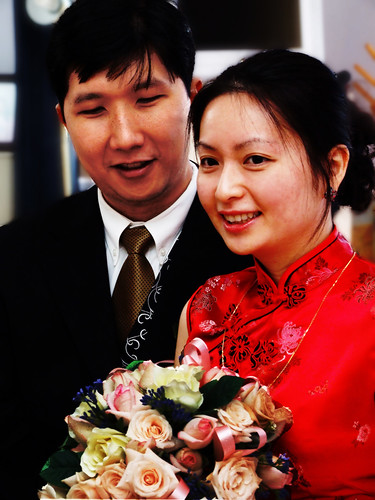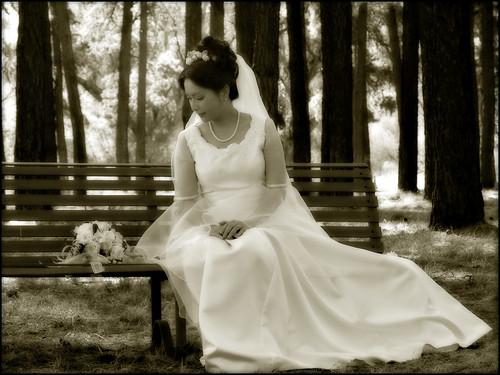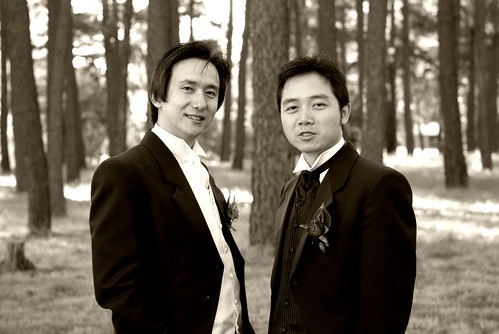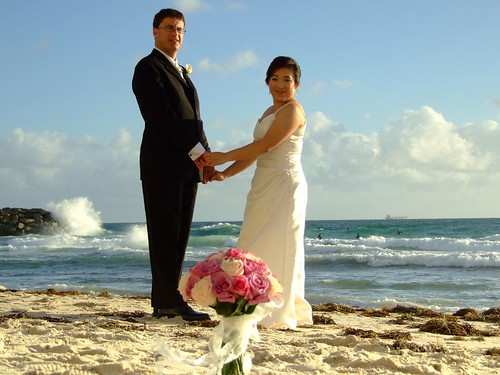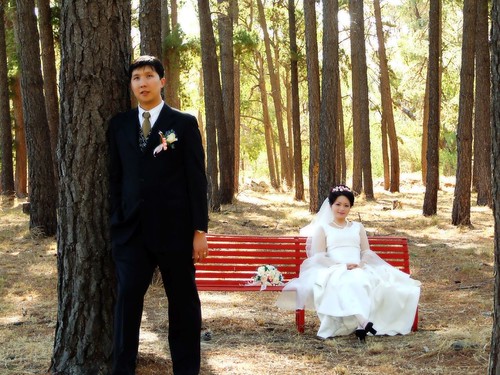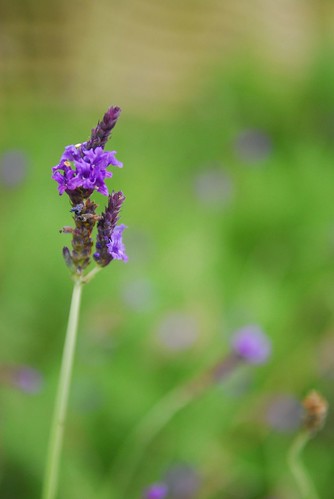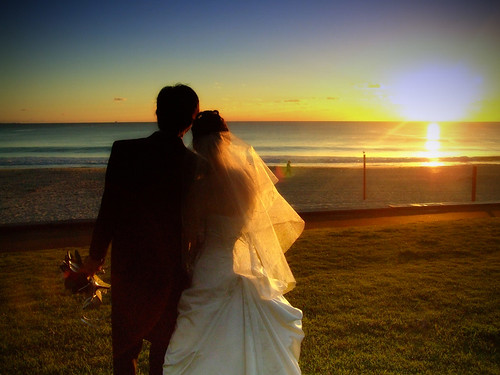Shooting any event is always a challenge, none so more than shooting a wedding.
Well, I really haven't shot any other types of event other than a
Police Pay Rally by the police union outside the Parliament house sometime back last year, so I might be wrong here.
Wedding shoots are usually a whole day, high pace affairs. I haven't heard or experienced a really easy wedding shoot yet. I have only done 3 wedding shoots so far, and thus, I am still pretty much a newbie at wedding photography. However, I think it will be fun reflecting on what happened to all my shoots and I will share my experience with you, the readers.
My first wedding shoot... it was fun, exciting, and a few oops and "oh dears". It all started when a good friend of mine whom I know for quite a number of years told me that he was getting married one fine day. Suffice to say, I jumped at the opportunity and asked if he had already found a wedding photographer. In Perth, Western Australia, good and cheap wedding photographers are limited commodity. Usually, Wedding couples have to pre-book photographers a year in advance to have any chance of securing a photographer on their big day. Therefore, there was really very little chance that my friend could have found any photographer willing to do his wedding unless he was willing to pay a real premium for the shoot.
Well, I got the gig. My friend asked me to shoot his wedding. Having told him that I was pretty much an amateur photographer and had never done any wedding prior to that shoot, he was fine with it. I was told that his brother-in-law will be shooting as well. The setup was perfect. His brother-in-law can be the main photographer and I will be the secondary, or an assistance. I grabbed the opportunity. My very first wedding shoot, and hopefully, the first of many more to come. I was on my way to become a part-time wedding photographer! How exciting. My wish came true!
Two days before the actual wedding day, the bride and groom had a rehearsal of the service. I went to the rehearsal and met my friend's brother-in-law only to realise that he was actually going to use a point and shoot compact digital. I, too, was also rather under equipped, having only own a
FujiFilm S9500 prosumer/bridge camera and a newly bought Nikon SB600 flash gun. That would have to do with for this wedding. I suddenly found myself being thrusted to take the role as the lead photographer for the wedding. Oh dear, I suddenly felt the weight of responsibility on my shoulder.
Lesson 1: Always ensure we set the expectation right. As I was only an amateur photographer and have never done a wedding shoot before, it was most important to ensure my friend understood the risk involved in getting me to do their wedding as the lead photographer. He had no backup plan. If I or my equipment failed, he would have no photos for his wedding. I was fortunate that he was happy to go along with the risk, thinking that there would be lots of guest with their compact cameras. I also later found out that he did in fact ask another friend to cover the church service. However, I was the only photographer doing all the family and group portraitsm and all the outdoor shoots.
Lesson 2: Do lots of research. Refer to lots of wedding photos, what to do and what not to do, how people pose the shots, what to take, how to make the bridal couple look really good in the shots. One source that I use quite a lot is the Flickr website. It has groups for photographers to post their shots and discussion forums whereby I was able to get some really valuable information and last minute "free" lessons and "tutorials" on wedding photography. Use these resources.
On the actual day, most of the shoot went ok. I was able to shoot pretty much what I had in mind. Thanks to the many wedding photos people post in Flickr. I was able to grab some idea of what to shoot and how to shoot the couple. The biggest "oops" and disappointment I had was the shoot during the service. I found the auto-focus of my camera rather slow for such high pace event. I missed too many shots simply because I wasn't able to focus quick enough. The flash worked as a treat though. However, the caveat was that I could only use it with my FujiFilm S9500 in manual modes, no TTL (or Through-The-Lens) metering mode. Every shot was pretty much a "hit or miss" :P God was kind with me that day. I believe I had far more hits than misses.
Lesson 3: Equipment is very very important in events like this. A good tradesman can never do a good job without the right tools. A good wedding photographer will need to be equipped with the right cameras, lenses and lighting equipment.
Lesson 4: It is almost necessary to have a backup or "fail-over" strategy. That means a backup photographer, a backup camera, extra batteries, etc. Needless to say that weddings are usually once in a life-time, not to be repeated affair. A photographer can not afford to miss too many shots or completely muck up the entire shoot. In the most unfortunate circumstances where an entire wedding shoot fails, I believe it is a quick exit door to this wedding photography industry :)
I'm sure there are many more lessons that I've not covered. This post is starting to look too long and I will wrap up pretty much now.
Final Lesson: Ensure that you make a checklist of what to shoot. That may include things like the bride's bouquet, the bride's shoes, the different sets of group photos of the bride and groom and their families and relatives, etc. I cannot stress enough that wedding is a fast pace event and good planning is required to ensure the success of the shoot.
All the best to the first timer. Happy shooting.
